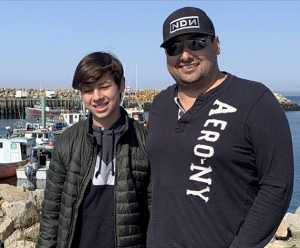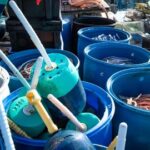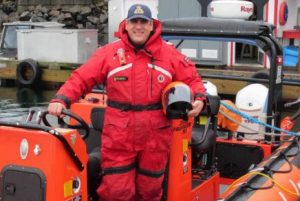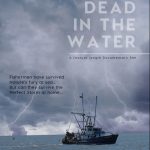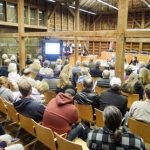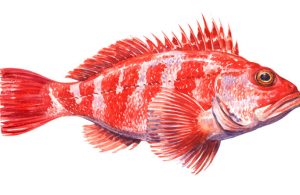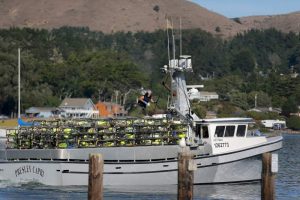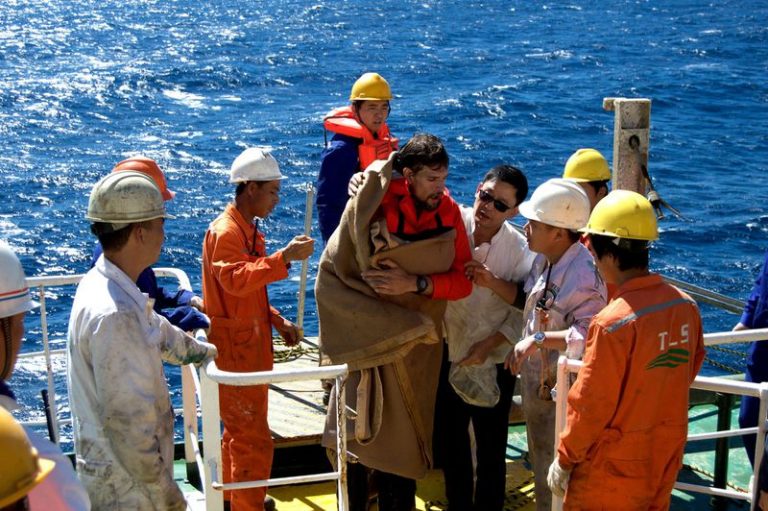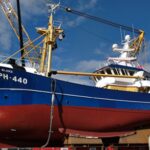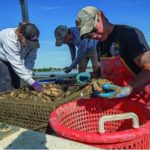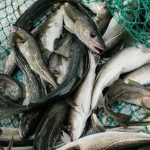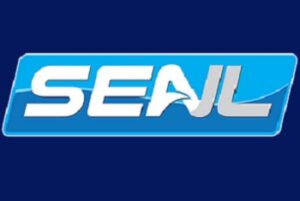Tag Archives: DFO
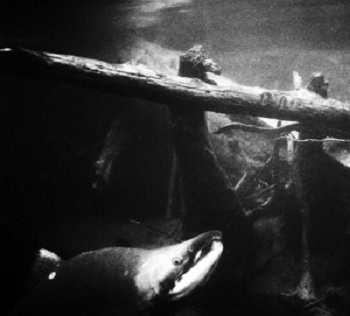
A virus that flourishes in fish farms is now threatening wild populations.
Wild salmon in British Columbia are in trouble. According to one estimate, some populations have dropped by as much as 93 percent since the early 1990s. Lately, the situation has grown dire.,, Last year, the number of sockeye returning to spawn in the Fraser River crashed to a record low. It’s hard to say exactly why this is happening, though logging, climate change, and overfishing all seem to play a role. Among the most controversial potential factors, however, is the virus Piscine orthoreovirus, or PRV. The virus isn’t necessarily fatal, but infected fish may be weakened and unable to swim as fast, making them more likely to be eaten by predators or fail to migrate upriver in order to spawn,,, Not everyone agrees. Among the dissenters is Fisheries and Oceans Canada-DFO,,, >click to read< Killing Sea Lions to Save the Salmon, February 1,1925, Dorothy G. Bell, >click to read< 19:39
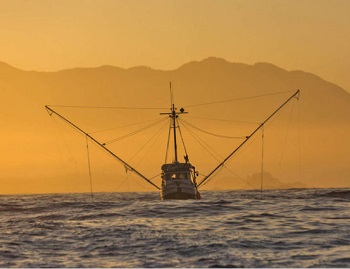
Five Nuu-chah-nulth First Nations demand fishing rights
“Our 5 Nuu-chah-nulth Nations demand reconciliation and recognition of their rights as affirmed in the constitution and declared by the Courts. They can not wait any longer for Canada to work with them on fishing plans and will be fishing under the authority of their Ha’wiih and asserting their rights as they have done since time immemorial,” said Nuu-chah-nulth Tribal Council President Dr. Judith Sayers,, The joint-statement demands that the five Nations have the right to fish and sell fish and adds that that right is “second only to conservation and has priority over the recreational and commercial sectors.” >click to read< 08:50
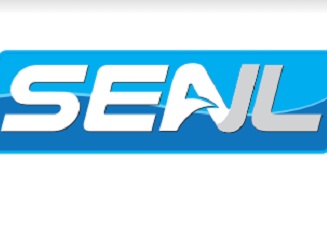
DFO and fishing vessel safety – A Damning Indictment of its safety culture
Fisheries and Oceans’ decision not to extend the halibut fishery in the Gulf of St. Lawrence for the province’s inshore harvesters who didn’t catch their quotas due to poor weather is a damning incitement of its safety culture, says Merv Wiseman, an outspoken search and rescue advocate. “DFO is telling fishermen if you don’t go to sea because of bad weather you’re going to lose your fish,”,,, “Putting extra pressure on fishermen to make decisions contrary to safety is a recipe for disaster that we’ve seen play out too many times.” A Transportation Safety Board report into the 2016 drowning of four Shea Heights fishermen found they took a risk in going out in questionable weather in order to land their weekly cod quota, and to recover fishing gear before deadline. >click to read< 07:34
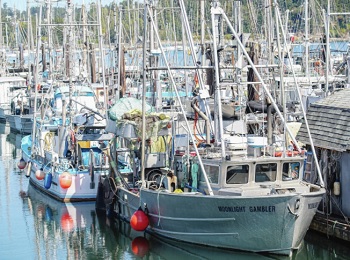
Commercial salmon fishers reeling from sweeping closures
Fourth-generation fisherman Jordan Belveal of Nanaimo was ready to head north on his boat Blue Bayou to catch coho July 1 in Dixon Entrance, between B.C. and Alaska, when he heard about the widespread closures. Although he says he doesn’t mind keeping his boat tied to the dock if it means preserving some runs, Belveal opposed the closures, saying some fisheries with a good abundance of salmon have been cancelled. Losing the 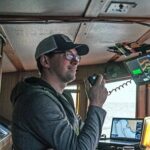 coho fishery has had a “major effect on us,” said Belveal, who operates Island Wild Seafoods with wife Catlin, selling hook-and-line caught sustainable wild seafood to Vancouver Island customers. Belveal is now counting on the Aug. 12 chinook fishery off Haida Gwaii, which would normally have opened in June but was delayed to allow fish to head to their home rivers on Vancouver Island and to the Fraser River, >click to read< 09:56
coho fishery has had a “major effect on us,” said Belveal, who operates Island Wild Seafoods with wife Catlin, selling hook-and-line caught sustainable wild seafood to Vancouver Island customers. Belveal is now counting on the Aug. 12 chinook fishery off Haida Gwaii, which would normally have opened in June but was delayed to allow fish to head to their home rivers on Vancouver Island and to the Fraser River, >click to read< 09:56

Water content deductions keeping harvesters sitting out the summers sea cucumber fishery
Sea cucumbers represent a $10-million industry in Newfoundland and Labrador, according to Fish Food & Allied Workers president Keith Sullivan. The creatures are a delicacy in Asian countries and other markets, and fetch a price of 70 cents per pound, according to the province’s fishery pricing panel. When catches are landed, processors drain the water inside sea cucumbers to remove the weight of the sea water from the buying price. 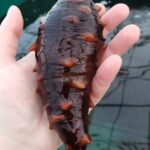 Harvesters used to deduct 23 per cent of the sea cucumber’s weight across the board to account for the water, but that percentage has been changed in the past year, and Sullivan says the harvesters’ bottom lines are being impacted. “Whereas other years you might be getting paid for 80 per cent or close to that of the animal, this year in a couple of cases we’re talking just over 50 per cent,” >click to read< 11:43
Harvesters used to deduct 23 per cent of the sea cucumber’s weight across the board to account for the water, but that percentage has been changed in the past year, and Sullivan says the harvesters’ bottom lines are being impacted. “Whereas other years you might be getting paid for 80 per cent or close to that of the animal, this year in a couple of cases we’re talking just over 50 per cent,” >click to read< 11:43
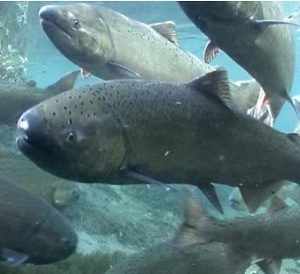
Could B.C. commercial salmon fishery closures affect Southeast Alaska?
Department of Fisheries and Oceans Canada, the federal agency that manages Canada’s fisheries, effectively ended the 2021 commercial salmon season on the West Coast in late June. Canada’s fishing industry was stunned, says B.C. Seafood Alliance Executive Director Christina Burridge. “First Nations have harvested salmon forever. And post-contact, salmon canneries are what in the sense built this province. To be now in this situation seems really tragic to me.” The closure came just weeks after Canada announced a more than half-a-billion dollar plan to revitalize its flagging Pacific salmon stocks in B.C. and Yukon Territory.,, The Chinook on the transboundary rivers Unuk and Chilkat are among the current Southeast stocks of concern. >click to read< 10:11
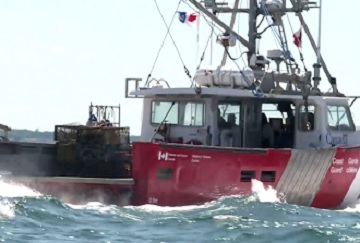
Mi’kmaw harvesting lobster in Nova Scotia under heavy police, DFO presence
Mi’kmaw harvesters are back on the water fishing for lobster and following their own food, social and ceremonial fishery plan. But the large contingent of police and fisheries officers is intimidating and infringing on their Treaty Rights.,, Boats with the Department of Fisheries and Oceans can be seen going by a local wharf with lobster traps on board. Sipekne’katik lobster harvesters are fishing for food and ceremony. Francis says there have been more police and fisheries officers present in the last few weeks. Video, >click to read< 21:22
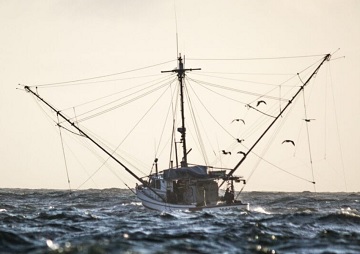
DFO’s sweeping salmon fishery closures leave workers reeling – Commercial fishers are paying the price,,,
“When we got that news, we’re like, shit, what do we do? And then there’s a little glimmer of hope, they didn’t say Area 4 was going to be closed for sure. That’s where I’m sitting now.” Carpenter, who is 54 years old, said waiting for the federal Fisheries and Oceans Department’s next move is a “huge gamble.” He said he has things he can do to earn money and fill his freezer if he can’t go out and fish but he’s worried about some of the older fishers who don’t have the same options. “What are they supposed to do? They’re going to go home, they may drink themselves to death or they may lose their marriages, their houses, sell everything. Who knows?” >click to read< 17:57

DFO Fishery Closures – ‘radical course of action’ will devastate salmon harvesters and coastal communities
A coalition of 13 members partnered in the media statement issued by UFAWU, decried the Department of Oceans and Fisheries (DFO) announcement of closures as “a radical course of action to combat the salmon crisis,”. “Many harvesters were freshly geared up, fees paid and deckhands aboard, heading their vessels to the salmon openings they were told to expect,,, “These closures will devastate salmon, harvesters, and coastal communities alike. The only gain will be the political favour of those who’ve been fooled into thinking this is the answer to the salmon crisis,” UFAWU stated >click to read< 14:29
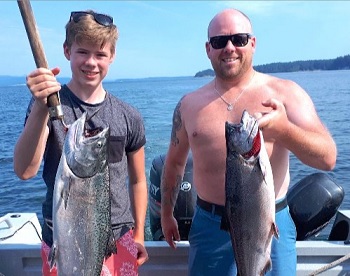
Should DFO rein in sport fishing to help save salmon?
Conservation groups want Ottawa to dramatically curtail the recreational fishery as it did with the commercial fishery last week in order to save wild salmon on the West Coast. But the sport sector, equally keen to protect the prized but diminishing chinook salmon, wants Fisheries and Oceans Canada (DFO) to make sure any further measures and restrictions this year are backed by science, and provide stability and results for the embattled fishers and the fish population. The federal government failed to address the recreational fishery, which also impacts salmon returns, despite making historic and dramatic reductions to the commercial fleet on the West Coast, said Jeffery Young, science and policy analyst with the David Suzuki Foundation. >click to read< 08:47
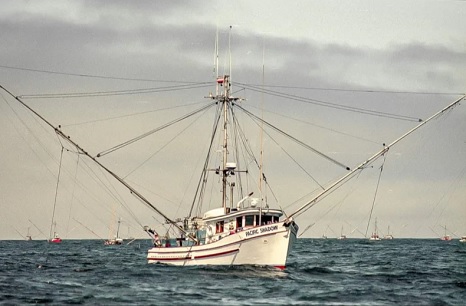
On the Brink of Extinction: DFO salmon closures sink dreams of Pacific fishermen
Geoff Millar’s livelihood is on the brink of extinction after DFO closed roughly 60 per cent of B.C.’s commercial salmon fisheries. The closures, DFO stated, will last “multiple generations” of fish to save tumbling salmon populations. The decision leaves Millar, along with hundreds of other commercial fish harvesters on the B.C. coast, in despair and in difficult financial straits. “These closures have absolutely devastated us,” affirmed James Lawson, a Heiltsuk fish harvester based in Campbell River, B.C.,, “We’ve been forced into a corner, and the only option is retirement, that seems to be DFO’s goal.” >click to read< 07:35
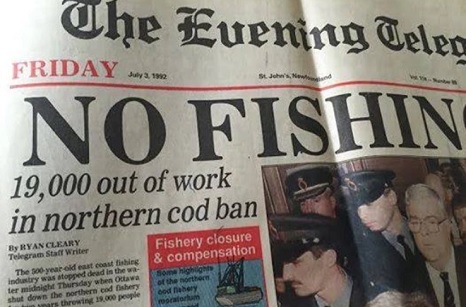
29 years of northern cod moratorium have cost NL at least $26 billion
In his 1992 book, No Fish and Our Lives, Some Survival Notes for Newfoundland, Cabot Martin wrote that a rebuilt northern cod stock could support annual harvesters of 400,000 tonnes (881 million/lbs).The moratorium remains the biggest layoff in Canadian history, and while there’s a small-scale inshore stewardship fishery, Fisheries and Oceans does not set a total-allowable catch (TAC), and it’s not considered a full-fledged commercial fishery. Where are we today? All three commercial cod stocks adjacent to Newfoundland and Labrador are categorized by DFO scientists as in the critical zone, meaning removals are to be kept to a minimum. >click to read< – 25 Years ago Today – The Northern Cod Moratorium – Sunday, July 2, 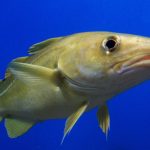 marks a quarter of a century since then federal fisheries minster John Crosbie announced what was planned to be a two-year moratorium on the northern cod fishery. It continues on today, though it has often seemed lost in the wake of a lucrative crab and shrimp fishery that remarkably saved the industry and many communities. But back in 1992, a province settled and built on the back of the mighty cod fishery, >click to read< 11:20
marks a quarter of a century since then federal fisheries minster John Crosbie announced what was planned to be a two-year moratorium on the northern cod fishery. It continues on today, though it has often seemed lost in the wake of a lucrative crab and shrimp fishery that remarkably saved the industry and many communities. But back in 1992, a province settled and built on the back of the mighty cod fishery, >click to read< 11:20
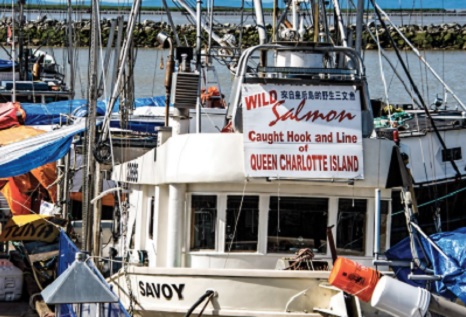
Significant Commercial Fisheries closures in BC – DFO to offer licence buyback to those ready to call it quits.
Federal Fisheries Minister Bernadette Jordan today announced “an initial step towards longer-term reductions in fishing pressure on stocks of conservation concern with significant commercial salmon closures for the 2021 season.” Jordan also announced there will be a federal fishing licence buyback offered to commercial fishers who are ready to call it quits. DFO’s Salmon Integrated Fisheries Management Plan for 2021-22 will result in closures to about 60% of commercial salmon fisheries in B.C. for 2021. >click to read< 15:22
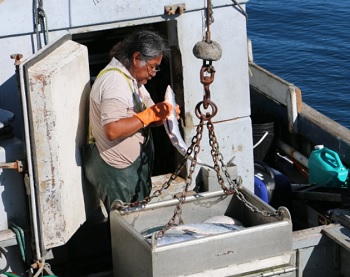
Feds told again to allow Indigenous commercial fisheries
Canada must stop controlling how five First Nations in B.C. harvest and sell salmon, halibut, and dozens of other marine species, a B.C. court has ruled. The decision marks the end of a 15-year legal battle waged by the federal government to prevent the Nuu-chah-nulth Nations, a coalition of five First Nations on the west coast of Vancouver Island, from reclaiming their traditional commercial fisheries decimated by colonial policies. “We are just trying to establish a commercial fishery that provides income to the families,”, “That’s the message we’ve been trying to give DFO as the Mi’kmaq fisheries on the East Coast have tried to do as well.” >click to read< 09:35
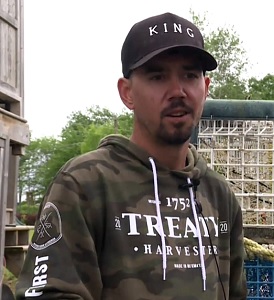
Mi’kmaw harvester wants lobsters seized by DFO accounted for
A Mi’kmaw lobster harvester wants to know what happened to his lobster after finally getting his fishing gear back from DFO,,, The gear had been sitting in a federal fisheries compound since then, and Matt Cope of Millbrook First Nation spent months trying to get it back. When Cope unloaded his gear this week, he was shocked to find damaged traps with ropes cut. “Traps aren’t cheap, ropes not cheap,” he said. “When they’re taking it for months at a time, and just all of a sudden giving it back when it’s all damaged, there’s no way we can fish like that.” >click to read< 08:50
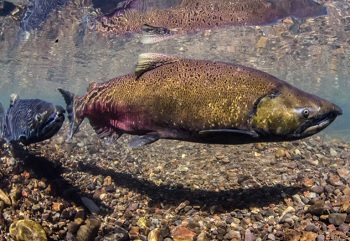
Pacific salmon recovery report gives 32 recommendations to reverse declines
Wild salmon stocks are being affected by a range of impacts throughout their life cycle, which span from freshwater streams and rivers, to coastal ‘foreshore’ areas and deepwater marine environments, per the report. These threats include habitat degradation, impacts of flood control measures, predation, fishing activity, and threats of disease from fish farms. Based on these findings, the committee provided 32 recommendations to reverse salmon declines, which one witness, Richard Beamish, Scientist Emeritus at DFO’s Pacific Biological Station in Nanaimo, calls the “international Pacific salmon emergency.” >click to read< 07:58
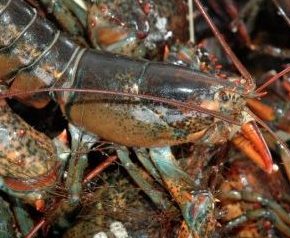
DFO seized and released hundreds of short lobster from a First Nations vessel in Cape Breton
DFO said enforcement officers inspected a vessel Tuesday night in St. Peters canal operating under a communal food, social and ceremonial licence. The lobsters were released that night. Noel d’Entremont, acting director of conservation and protection in the Maritimes region, said no charges have been laid, but an investigation is continuing. A portion of the incident was captured on video and posted to social media showing lobsters being tossed back in the water by DFO officers. The FSC licence being fished was for a Cape Breton band, which DFO declined to identify. >click to read< 17:07

Fisheries and Oceans Canada held Lobster Science Partnership Roundtable
On June 15, Fisheries and Oceans Canada held a Lobster Science Partnership Roundtable to discuss important lobster science questions and research priorities. Thank you to the more than 40 participants, including Indigenous partners, commercial fishing representatives, other key researchers and Fisheries and Oceans Canada scientists, for their invaluable contribution to the conversation on the work that needs to be done to chart a common course for lobster science. For further information, >click to read< 08:53
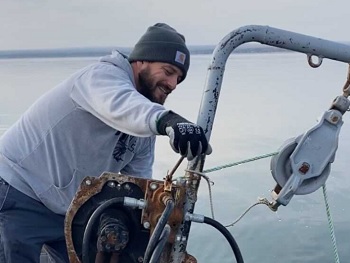
A group of Indigenous Fishermen want to take the Government of Canada to court with a class action lawsuit
Cody Caplin is frustrated. “They just keep taking away from me and my family,” he says. “The “they” he’s referring to are officers from the federal Department of Fisheries and Oceans, who Caplin alleges keep him under surveillance. He says these officials are often around when he comes back to the wharf from fishing. “If we go drop traps, they’ll park their vehicle, walk on down to our boat, and say ‘you guys can’t put those traps in the water without tags.’ [And I’ll say] ‘well, actually, we can,’” he says. That’s why Caplin is part of a group of Mi’kmaq fishermen from across Atlantic Canada looking to launch a class action lawsuit against the Canadian government, claiming that their rights are not being respected. >click to read< 20:33
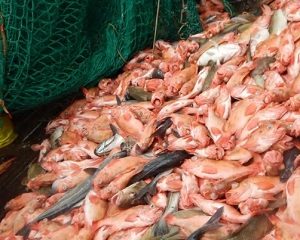
Canada adds warm-water fish to list of species monitored in DFO summer trawl survey off East Coast
Several warm-water fish species were added to the annual summer research vessel survey off the coast of Eastern Canada in 2020.,, Monitoring for the blackbelly rosefish, john dory, trigger fish, tilefish fish, dusky shark and others was included in the DFO summer trawl survey along the Scotian Shelf and Bay of Fundy for the first time last year. It was done at the request of the commercial fishing industry, which is capturing them accidentally, called bycatch, but cannot land them because they are not included in any Canadian commercial fish licence conditions. That doesn’t make sense to Alain d’Entremont, president and CEO of Scotia Harvest,,, “I think that if they are groundfish species and we are catching them as part of our regular fishing, then there should be mechanisms for us to be able to land them,,, >click to read< 16:55
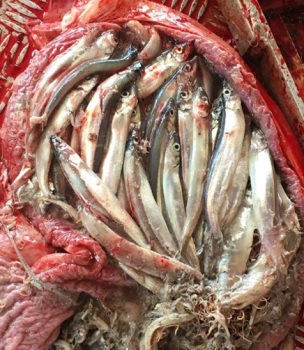
5 miles of seals: Newfoundland fisherman’s video fires up more debate about pinnipeds
Fisherman Jason Branton was steaming home after a crab fishing trip a week ago when he saw something he’d never witnessed before. The 45-ft longliner Gracie’s Adventure was about 60 miles out from Baccalieu Island, in Trinity Bay, on May 30 when Branton and the crew noticed seals all around them. They had encountered a large herd of seals, a patch about five miles wide,, adding this is also the time when capelin begin migrating inshore. Branton and his crew rely mainly on crab, capelin and cod for their fishing income. The question of the impact of seals on fish and shellfish stocks has been debated for years and become more heated in recent years,,, video, >click to read< 10:23
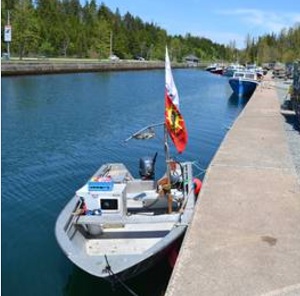
New agreement between Potlotek and DFO off to rocky start
Craig Doucette had a lukewarm reaction to his first weekend fishing under a new arrangement,,, The experienced lobster fisher from Potlotek First Nation said fisheries officers followed him closely on Saturday morning as he set his 20 traps for the day. “They’ve never come after me like that before. They’ve never followed my boat, they always wait till I leave,,, On Sunday morning, Doucette took in his catch and said none of his traps had been seized. Fisheries and Oceans Canada and the Assembly of Nova Scotia Mi’kmaw Chiefs each issued a statement on Friday saying the two sides had come to an understanding >click to read< 21:42
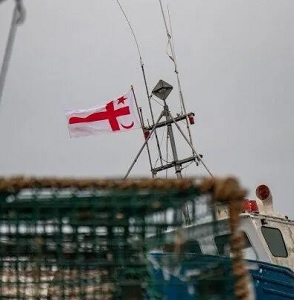
The Sipekne’katik First Nation has indefinitely postponed the start of a communal lobster fishery
The band said it was concerned for the safety of its fishermen and lacked resources to launch the fishery in St. Marys Bay. “The reality is that we would need to provide our own security and police our own gear getting seized and it feels like a costly prospect for our community after all that we have lost,” Chief Mike Sack said in a news release. The decision to postpone came following an emergency meeting of fishermen at Sipekne’katik on Wednesday morning. >click to read< 14:06

DFO: Lobster Science Partnership Roundtable with Indigenous partners, commercial fishing reps, and researchers
Minister of Fisheries, Oceans and the Canadian Coast Guard, the Honourable Bernadette Jordan, announced the launch of the Lobster Science Partnership Roundtable. On June 15th, Fisheries and Oceans Canada scientists, Indigenous partners, commercial fishing representatives, and other key researchers will come together to discuss their most important research questions and priorities, with the shared goal of increasing our knowledge around lobster stocks. >click to read< 11:22
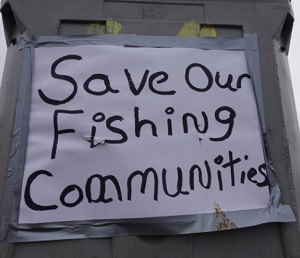
Prospect-area mackerel fishermen haul after DFO sets season quota
“Mackerel is a big part of our living around this coast and always has been,” Darrell Countway said, a fisherman and member of the Prospect Area Full-Time Fishermen’s Association. Countway is one of the dozens of fishermen who were ready to set up a roadblock if the Department of Fisheries and Oceans (DFO) further delayed their season. “It would have been three, four months’ worth of work for no pay,”,,, DFO eventually set the quota at a 50 per cent reduction from last season at a 4,000-tonne total allowable catch for the fisheries in Atlantic Canada and Quebec. Video, >click to read< 07:20
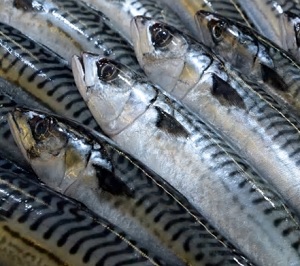
Canada cuts Atlantic mackerel quota in half to ‘rebuild stock’, to be released in two phases to ensure access
Canada has slashed the quota in half for Atlantic mackerel, from 8,000 tonnes last year to 4,000 tonnes this year. “This is a difficult decision that has economic impacts on commercial harvesters and their communities, but the science is clear: stronger actions need to be taken to rebuild the Atlantic mackerel stock,” said Federal Fisheries and Oceans Minister Bernadette Jordan in a news release Friday. That will help ensure fishermen in Newfoundland, where mackerel arrive later in the year, get access to some quota. >click to read< 08:03

Potlotek First Nation seeks injunction against DFO over self-regulated fishery
A number of First Nations communities in the province, including Potlotek, launched their own self-regulated lobster fisheries last year to mark the 21st anniversary of the historic Supreme Court of Canada decision that affirmed Mi’kmaw rights to fish for a moderate livelihood. Many commercial fishermen have opposed the fisheries operating outside commercial seasons. In March, federal Fisheries Minister Bernadette Jordan said Ottawa will not licence any treaty-based fishery in Atlantic Canada unless it operates within the commercial season. >click to read< 10:15








